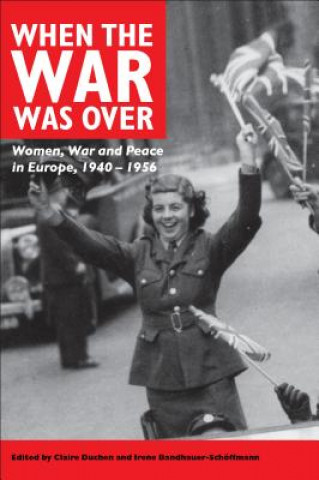
Dostawa
Doradca ds. zakupów
15 947 780 książek w 175 językach







Pokaż wszystkie języki (175)





Jednak się nie przyda? Nic nie szkodzi! U nas możesz zwrócić towar do 30 dni
 Bon prezentowy
O dowolnej wartości
Bon prezentowy
O dowolnej wartości
Bon prezentowy to zawsze dobry pomysł. Obdarowany może za bon prezentowy wybrać cokolwiek z naszej oferty.
When the War Was Over
 Angielski
Angielski
 467 b
467 b
30 dni na zwrot towaru
Mogłoby Cię także zainteresować


This work focuses on the experiences of women in Europe during the transition from war to peace. Popular images of women represent them as welcoming home the soldiers but this text asks "what happened next?"; "what did the end of the war mean for women?"; "how was the relationship between public and private altered by the war?" In the post-war decade, daily life and public life changed for women in different national contexts, most notably with the ending of fascist regimes in Germany and Italy, the re-establishment of independence in Austria and Finland, the end of the Occupation in France, Holland, Belgium and elsewhere, the descent into civil war in Greece, the realignment of European states leading to the Cold War, the Warsaw Pact, and the founding of the state of Israel. This text asks about women's part in these changes and how women and men narrate, and looks at the symbolic use made of female imagery and highlights the plasticity of the female form. The contributors use a range of methodological approaches and they encourage the reader to question traditional historiography, the nature of historical evidence, the process of memory, the disparities between official discourse and personal narrative, and between written, visual and oral accounts.
Informacje o książce
 Angielski
Angielski
Kategoria




 Jak kupować
Jak kupować





















